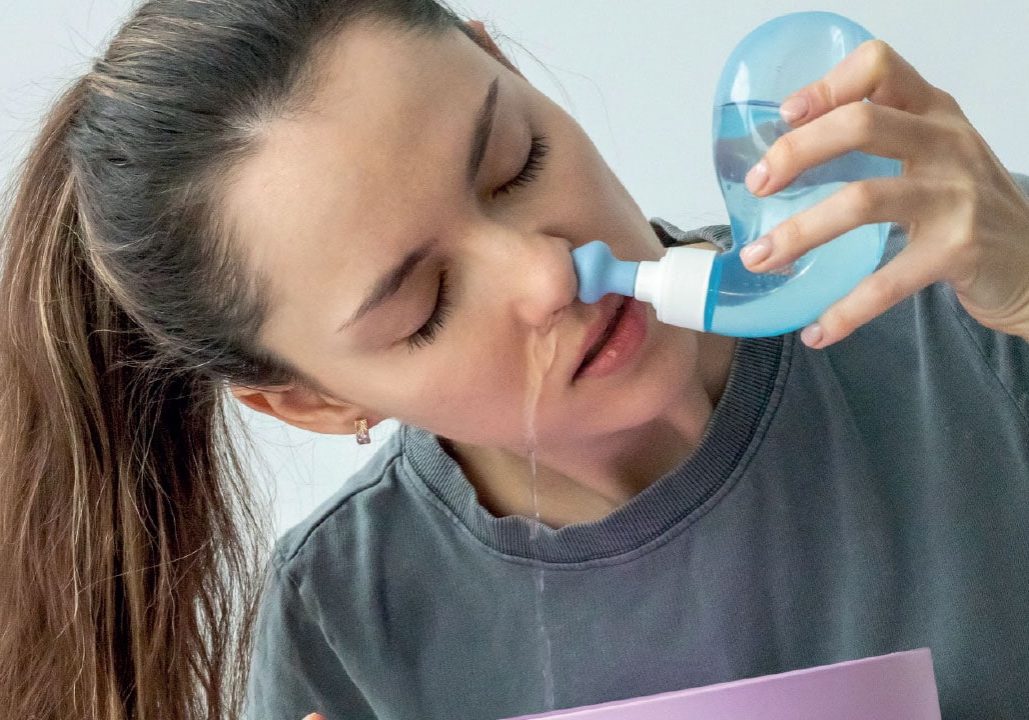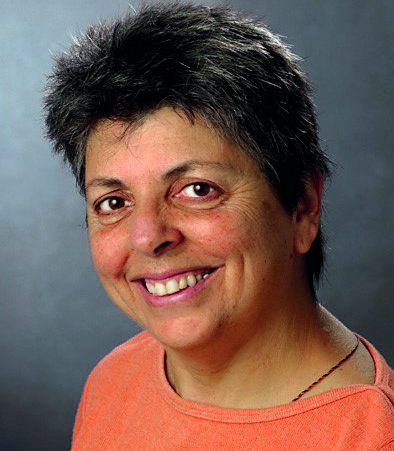
Yoga Mentor: Swami Saradananda
Swami Saradananda is an internationally- renowned yoga and meditation teacher who runs courses and mentoring online. An author of numerous spiritual books, she’s passionate about inspiring others to practice yoga and to explore some of its deeper meanings. Here, she discusses Kriyas: yoga cleansing for the post-lockdown era.
Kriyas: yoga cleansing for the post-lockdown era
Whether or not you already do yoga asanas, you can benefit from integration of kriyas (yoga cleansing exercises) into your daily routine. These lesser-known practices are an integral part of a yogic lifestyle, which tends to be one of simple living and positive thinking. They have much to offer modern people who find it difficult to reduce tension, eat properly and/or get a good night’s sleep.
If you are frequently stressed or you tend to push yourself beyond your limits without enough rest, you may face the disappointment of failing to achieve the inner joy that yoga promises – even if you perform yoga postures on a regular basis. Kriyas can greatly assist you in achieving your health goals and awakening your untapped potential. Performed on a regular basis, cleansing exercises can assist you in transforming your dormant, static energy into a dynamic state - and they promote a fresh outlook on life.
There are a variety of kriyas; most take very little time and deliver great benefits. To begin, I would suggest the practices of oil-pulling, tongue cleaning and neti (nasal cleansing). All three together would probably add no more than 5 minutes to your morning routine.
Tomorrow, when you first wake up, look into the mirror and stick out your tongue. You’ll probably notice a coating on it that can lead to bad breath. With your tongue out, place a tongue cleaner (or a spoon) onto the back and gently slide it forward to remove the coating. Rinse the tongue cleaner under running water and repeat the process. A slight gag, while not pleasant, can help to bring up mucus and ama (toxins) from the back of the throat.
Next comes oil pulling, considered by yogis to be a an effective way to guard against tooth cavities and to eliminate harmful bacteria from the mouth before they spread to other parts of the body. It is also valued for strengthening the tongue and gums and helping to reduce plaque.
You will need approximately 30ml (2 Tbs) of organic sesame (untoasted), coconut or extra-virgin olive oil. Place a large spoonful of the oil into your mouth and swish it around for up to 20 minutes. As you do this, you can get dressed, make the bed and engage in other preparations for the day. Avoid swallowing the oil. After the designated time, spit out the oil (not into a sink, which may block the drain) and then brush your teeth. Oil pulling is not a substitute for tooth-brushing. Rinse your mouth and follow with neti (nasal cleansing).
Neti is an excellent way to keep your nasal passages and sinus cavities open and free of pollution, pollen, bacteria and excess mucus. It is an excellent practice for modern people who are worried about air-borne micro-organisms. Nasal cleansing has special relevance for people with asthma, allergies and other respiratory problems, but everyone can benefit from the practice.

You will need a small ‘neti pot’ with a spout, which is available from most health foods stores and online. Fill the neti pot with the lukewarm water and add approximately ½ teaspoon of fine sea salt; stir until the salt is absorbed. You may want to taste the water to make sure that it is the right amount of saltiness, i.e., it should taste like tears, not like seawater.
Leaning over a sink, close the back of your throat (as though you are about to gargle). Tilt your head to the left, hold your breath and pour the salt-water into your right nostril. Allow gravity to drain the water out through your left nostril. Do not inhale the water. Blow your nose and repeat the procedure by tilting your head to the right and pouring the water through the top (left) nostril.
Be sure to dry out your nasal passages after doing neti. Sitting to do some pranayama at this point will enhance the efficacy of the kriyas. When you include cleansing exercises in a regular routine of yoga postures, breathing exercises and a pure diet, they can enable you to experience a positive state of glowing, joyful wellbeing that is more than the simple negation of disease.
So, why not go beyond the purely postural forms that most people know as yoga. There are a vast variety of cleansing techniques that are designed to purify your body, mind and prana (subtle energy). Kriyas are natural ways to eliminate physical impurities and energetic blockages which may inhibit your enjoyment of radiant good health.
Some questions to ask yourself as to why you might find yogic cleansing techniques helpful:
- Do you feel the need to improve your health and well-being in general?
- When you awaken in the morning, do you notice a thick coating on your tongue?
- Do you find that you tire more easily than you used to or lack stamina?
- Would you like to clear your body and mind of unnecessary clutter and improve your quality of sleep?
- Do you catch cold frequently and/or suffer from recurrent headaches?
- Do you regularly consume and crave junk foods, sugar and caffeinated beverages?
- Do you feel a lack of healthy motivation in your life?
- Are you are plagued by feelings of heaviness and/or bloating?
- Do you find that chronic constipation and other digestive problems are commonplace?
- Would you like to increase your energy levels and strengthen your immune system?
- Do you have difficulty in setting healthy boundaries?
- Do you have difficulty focusing or lack concentration
Swami Saradananda is an internationally-renowned yoga and meditation teacher who inspires you to practise. Her classes are both practical and theoretical. She is the author of "Chakra Meditation", "Essential Guide to Chakras" “Power of Breath”, “Mudras for Modern Life”, “Cleansing Power of Yoga” and “Sitting Comfortably: preparing the mind and body for peaceful meditation” – and she holds an MA degree in ‘Traditions of Yoga and Meditation’ from SOAS, University of London.
Email: swami.saradananda@gmail.com
Website: https://yogamentor.yoga
IG: yoga_mentor





